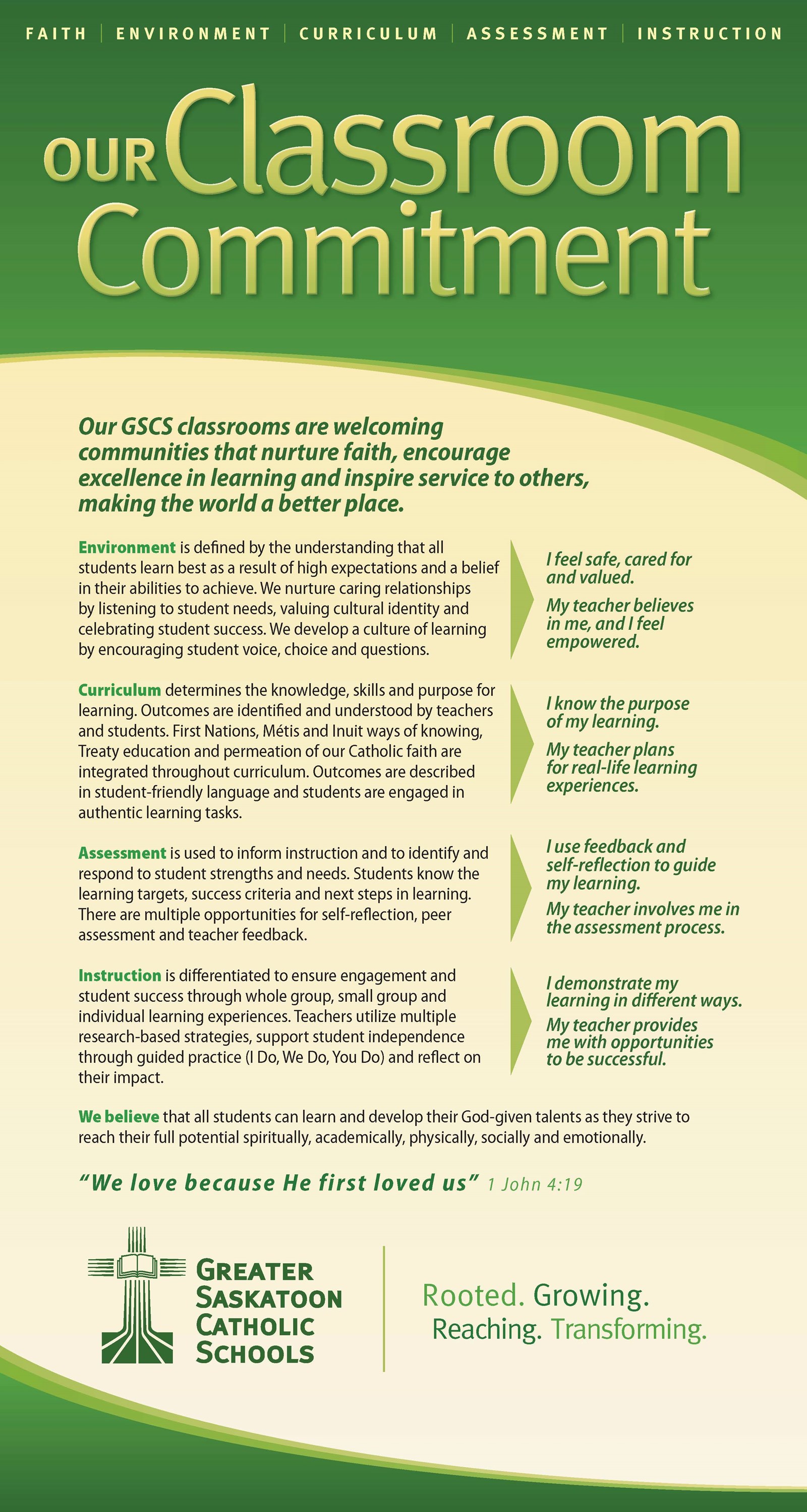Elementary Learning Program and Assessment

Within GSCS, assessment is central to the teaching and learning process. As such, assessment must involve students, parents/guardians and teachers as active participants. The primary purpose of assessment is to support and enhance student learning. Assessment is also used to communicate consistent, accurate and meaningful information to all stakeholders. GSCS values the role of assessment in teaching and learning. Accordingly, GSCS encourages excellence through assessment for learning, assessment as learning and assessment of learning opportunities (GSCS Quality Core Instruction).
Saskatchewan Student Assessment
As part of the Government of Saskatchewan's 2020-2030 Provincial Education Plan, the Ministry of Education will be implementing the province-wide Saskatchewan Student Assessment for core subject areas (Grades 5 and 9 mathematics; Grades 4, 7 and 10 English language arts). Students are expected to take their first assessments in the spring of 2026.
 click to view the full Parent-Caregiver Guide to Assessment and Reporting
click to view the full Parent-Caregiver Guide to Assessment and Reporting
Elementary Progress Reports
Learning Behaviours
Why are learning behaviours important?
Learning behaviours have a significant impact on student achievement; that is, they affect how well students will learn in their areas of study..
How will the teacher report on learning behaviours?
The teacher will assess students on the behaviours outlined below using the scale: Usually, Sometimes and Not Yet Evident
| Sample of Elementary Progress Report (students will receive progress reports three times per year) |
|---|
Learning Behaviours |
Lifelong Learner |
| Asks questions and problem solves |
| Sets goals and uses feedback for improvement |
| Perseveres when challenged and seeks assistance when needed |
Sense of Self |
| Demonstrates a positive and respectful attitude towards others |
| Takes responsibility for and manages own behaviour |
| Demonstrates a positive sense of identity |
Engaged Citizens |
| Engages in classroom activities |
| Demonstrates collaboration |
| Positively contributes to the classroom and school community |
Work Habits |
| Demonstrates organizational skills |
| Shows care and effort in daily work |
| Completes tasks independently |
Achievement Scale
| Key for Required Areas of Study | ||
|---|---|---|
| 4 | Exemplary | Evidence indicates in-depth understanding, demonstration or application of the outcomes |
| 3 | Meeting | Evidence indicates understanding, demonstration or application of the outcomes |
| 2 | Approaching | Evidence indicates progression towards understanding, demonstration or application of the outcomes |
| 1 | Beginning | Evidence indicates initial understanding, demonstration or application of the outcomes |
| INC | Incomplete: Not enough evidence available to report | |
| NA | Not applicable this term | |
| IIP | Achievement is based on individualized goals | |
| * | Achievement is based on curriculum expectations that are well below grade level | |
| Key for Religious Dimension and Learning Behaviours | |
| U | Usually Evident |
| S | Sometimes Evident |
| N | Not Yet Evident |